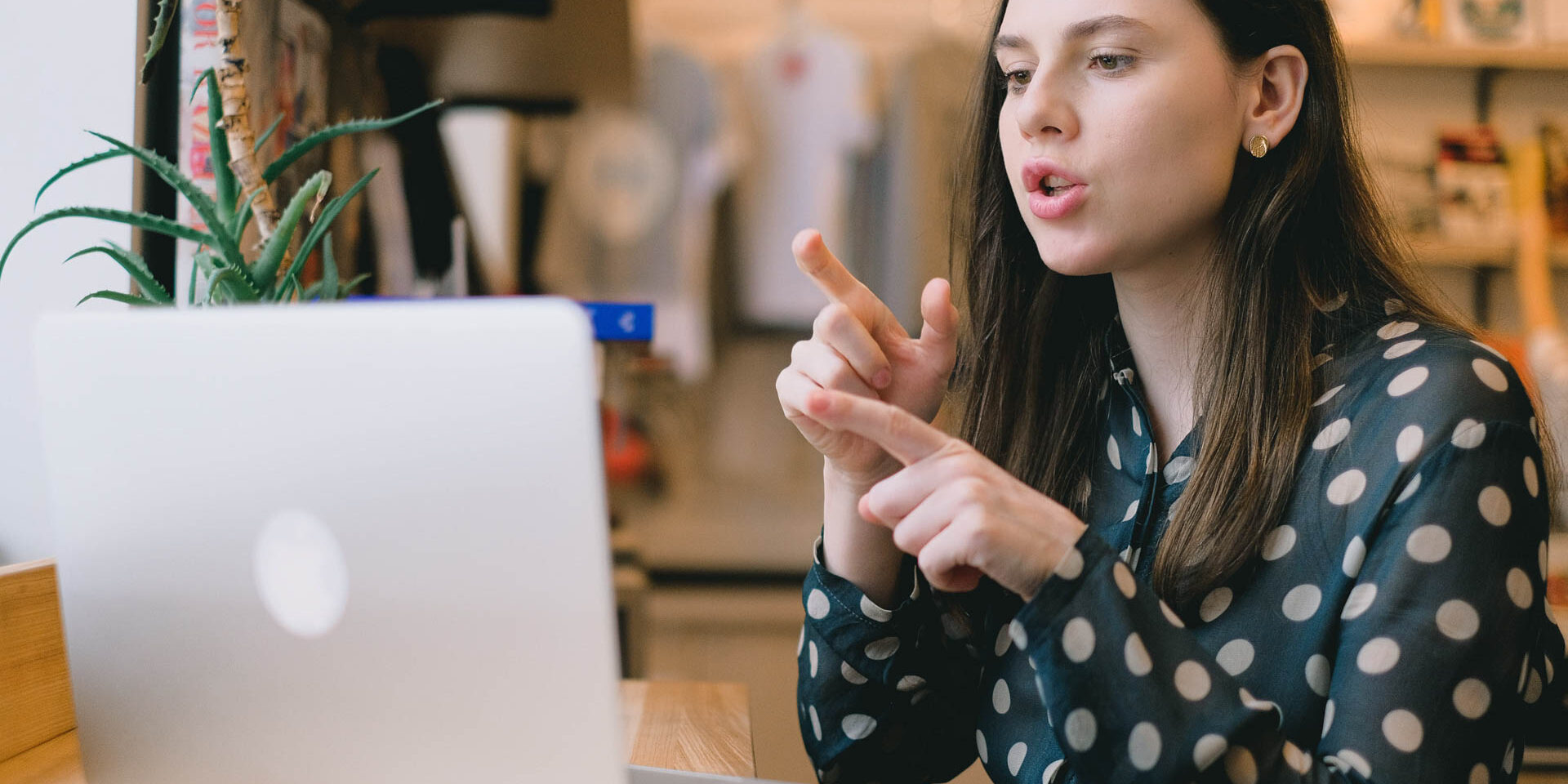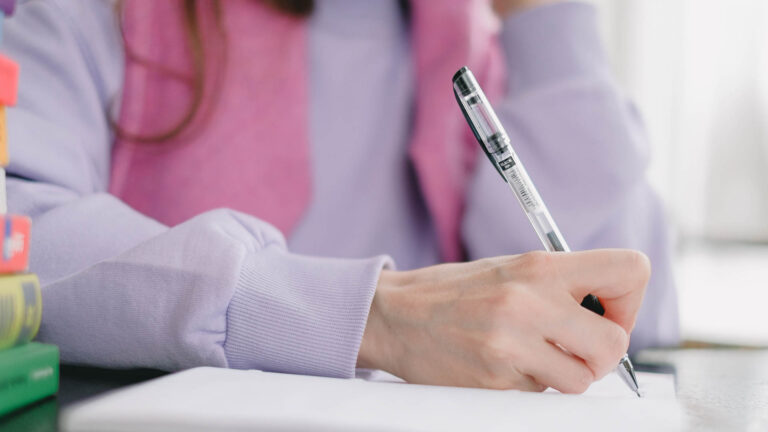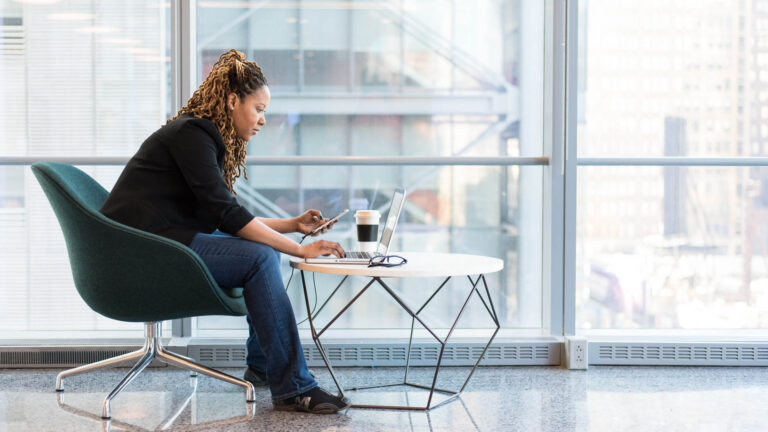Following up after an interview is an essential step that many job seekers tend to overlook. It is a crucial part of the job application process as it shows your continued interest in the position and makes you stand out among other candidates. Employers appreciate when applicants take the initiative to follow up and consider it as a positive sign of proactivity and professionalism.
Why follow up after an interview?
One of the most important aspects of job hunting etiquette is following up after an interview. Failure to do so can have serious consequences.
A. Explanation of the benefits of following up
- Reinforce interest
Following up after an interview shows that you are truly interested in the position. It’s a chance to express your enthusiasm and remind the hiring manager of your qualifications. This can make the difference between you and another candidate who didn’t follow up.
- Demonstrate professionalism
Following up after an interview demonstrates your professionalism and attention to detail. It shows that you understand the importance of clear communication and respectful behavior, which can be a positive reflection on your work ethic.
- Address any unanswered questions
Following up can provide the opportunity to address any questions that may have been unanswered during the interview. This can give you the chance to clarify any misconceptions or expand on points made during the interview.
B. Overview of the potential consequences of not following up
- Missed opportunity
Not following up after an interview can result in missed opportunities. The hiring manager may forget about your application or think you’re not interested in the position, which could lead them to look elsewhere.
- Lack of professionalism
Failure to follow up after an interview can be seen as a lack of professionalism. It may give the impression that you are not interested in the organization or the position, or that you don’t understand the importance of follow-through.
- Limited feedback
If you don’t follow up after an interview, you may miss out on valuable feedback. This can be especially important if you didn’t get the job. Following up can give you insight into what you could have done differently, which can help you in future interviews.
Following up after an interview is an essential part of job hunting etiquette. It reinforces your interest, demonstrates professionalism, and provides an opportunity to address any unanswered questions. Failure to follow up can lead to missed opportunities, a lack of professionalism, and limited feedback. Therefore, it’s important to include a follow-up plan as part of your job search strategy.
When to Follow Up
When it comes to follow-up after an interview, timing is crucial. Follow these timing considerations to increase your chances of success.
A. Timing Considerations
The day of the interview: It is appropriate to follow up on the day of the interview, preferably a few hours after it. A quick email or phone call to express your gratitude for the opportunity and reiterate your interest in the position can leave a positive impression.
One day after the interview: If you haven’t heard back from the interviewer after a day, it’s okay to follow up again. Email is the preferred method of communication, but a phone call is acceptable if the interviewer provided their phone number.
One week after the interview: If you still haven’t received any response after a week, it’s essential to follow up again. Avoid being too aggressive, but make sure to show that you’re still interested in the position.
B. Typical Timeframes for Interview Decisions
The time it takes for a company to make an interview decision varies, but here are some typical timeframes:
- For entry-level or lower-level positions: 1-2 weeks
- For mid-level positions: 2-3 weeks
- For executive-level positions: 3-4 weeks or more
It’s important to note that these timeframes are just guidelines, and the process can take longer or shorter depending on the company’s hiring needs.
Following these guidelines can help you navigate the etiquette of follow-up after an interview and increase your chances of getting the job. Remember, being patient and persistent can pay off in the end.
The Etiquette of Following Up After an Interview
The Appropriate Methods for Following Up
After an interview, it’s important to follow up with the employer to show your continued interest in the position and extend gratitude for the opportunity to interview. There are several ways to follow up, including email, phone, mailing a letter, or through LinkedIn.
A. Email
Email is one of the most popular methods of following up after an interview. However, it’s important to keep in mind the following:
1. Subject line
Your subject line should be professional and clear, indicating that it’s a follow-up after the interview. Examples include “Following up on our Interview,” “Thank you for the Interview,” or “Inquiry about Next Steps.”
2. Tone
Your tone should be friendly and professional, expressing your continued interest in the position and thanking the employer for their time. Avoid sounding pushy, as this can be off-putting.
3. Content
In the body of the email, express your continued interest in the position and reiterate why you are a good fit for the role. Thank the employer for their time and consideration and ask about the next steps in the hiring process. Finally, make sure to sign off with a polite and professional closing, such as “Sincerely” or “Best regards.”
B. Phone
Following up with a phone call can also be effective; however, it’s important to keep in mind the following:
1. When to call
Wait at least a day or two before following up with a phone call. This gives the employer time to process other interviews and make decisions.
2. What to say
When you call, introduce yourself and remind the employer of when you interviewed. Express your continued interest in the position and ask about the next steps in the hiring process.
3. Who to ask for
Make sure you have the correct contact person before making the call. Inquire about who would be the best person to speak with regarding the position.
C. Mailing a Letter
Sending a handwritten letter can be a thoughtful way to follow up after an interview. Keep in mind the following:
Include your contact information and the date of the interview.
Express your gratitude for the opportunity to interview.
Reiterate your interest in the position and why you are a good fit.
Thank the employer for their time and consideration.
D. LinkedIn
Following up through LinkedIn can be a good way to maintain a connection with the employer. Keep in mind:
Send a connection request within a few days of the interview.
Personalize the request with a message thanking the employer for the opportunity to interview and expressing your interest.
Keep your profile up-to-date and professional to make a good impression.
Following up after an interview can help show your continued interest and gratitude for the opportunity.
Guidelines for sending thank you notes
When it comes to following up after an interview, one commonly overlooked step is sending a thank you note. It may seem like a small gesture, but a well-crafted thank you note can make a big impact in your job search. Here are some guidelines to help you send an effective thank you note:
A. Purpose of the thank you note
The purpose of a thank you note is to express gratitude for the opportunity to interview for a position, and to reiterate your interest in the role. It is also an opportunity to showcase your professionalism and communication skills.
B. Components of an effective thank you note
An effective thank you note should include the following components:
1. Opening paragraph
Begin your note by thanking the interviewer for taking the time to meet with you, and express your appreciation for the opportunity to interview for the position.
2. Personalization
Incorporate something personal from the interview to show that you were engaged and interested in the conversation. For example, you could reference a specific project or initiative discussed during the interview.
3. Reflection on the interview
Reflect on the interview and highlight any key takeaways, such as how your skills align with the requirements of the position or how you would approach a particular challenge in the role. This will show that you are thoughtful and reflective.
4. Thanks and reiteration of interest
End your note by thanking the interviewer again for their time and expressing your continued interest in the position. Reiterate why you are a good fit for the role and why you are excited about the opportunity.
5. Closing
Close your note with a professional sign-off, such as “Best regards” or “Sincerely,” and include your contact information.
C. Timing considerations
Timing is an important consideration when sending a thank you note. It is best to send the note within 24 hours of the interview to ensure that it is timely and top of mind for the interviewer. If you interviewed with multiple people or had a lengthy interview, you may choose to send individual notes or a group thank you note.
Sending a thoughtful thank you note is an important part of the interview process. By following these guidelines, you can ensure that your thank you note is effective and helps you stand out as a top candidate for the position.
Different scenarios and considerations
Job interviews are nerve-wracking experiences that require a lot of patience and follow-up after the fact. It’s not uncommon to encounter various situations that require different follow-up actions. In this section, we’ll discuss some different scenarios that may arise and how to handle them.
A. No response after the first follow-up
If you’ve followed up after the initial interview, but haven’t received a response, there are a few different options to consider. First, make sure that you’ve given the interviewer enough time to respond, depending on the company’s hiring process. If you still haven’t heard back after a reasonable amount of time, it’s okay to send a second follow-up email. Keep it brief and polite, and express your continued interest in the position.
B. Additional interviews scheduled
If the interviewer has requested additional interviews or meetings, it’s important to approach them with the same level of professionalism as the initial interview. Make sure to prepare just as thoroughly as you did the first time around. Remember, the company may be considering you among other top candidates, so take these additional interviews seriously.
1. How to approach and follow-up
After the additional interviews, it’s always a good idea to send a thank you email or note to the interviewer(s). This shows that you appreciate their time and the opportunity to further discuss the position. If you don’t hear back after this second round of interviews, follow up with a polite email expressing your continued interest in the position.
C. Job offer extended
If you receive a job offer, congratulations! However, it’s important to handle the acceptance or rejection of the offer with professionalism and tact.
1. How to gracefully accept or decline
First, take some time to consider the offer and negotiate if necessary. If you decide to accept the offer, reply promptly and express your appreciation for the opportunity. If you decide to decline the offer, do so respectfully and politely. It’s always a good idea to include a reason for declining, such as securing another position that aligns better with your career goals.
D. Follow-up after receiving the job offer
After accepting a job offer, it’s a good idea to follow up with the employer to clarify any details or ask any questions you may have. Make sure to clarify start dates, benefits, and any other important details before your first day. Thank the employer once again for the opportunity and express your excitement for the new position.
Following up after a job interview can be a complicated process. By following these tips and strategies, you can ensure that you handle each scenario with professionalism and tact, increasing your chances of landing your dream job.
Etiquette considerations
In addition to expressing gratitude for the opportunity, it is important to consider etiquette when following up after an interview. This includes professionalism in communication, carefully considering tone and language, and following up without being a pest.
A. Professionalism in communication
When following up after an interview, it is essential to maintain a professional tone in all communication. This includes not only the content of the message but also the method of communication. Email is a common form of follow-up communication, but it is important to ensure that the message is well-written and free of errors. Personalization is also important, so consider addressing the interviewer by name rather than using a generic greeting.
B. Tone and language
The tone and language used in a follow-up message can greatly affect the impression given to the interviewer. It is important to strike a balance between expressing eagerness and enthusiasm while avoiding appearing desperate or pushy. Avoid using phrases such as “Just checking in” or “I haven’t heard back yet,” which may come across as demanding or insistent. Instead, express gratitude for the opportunity and reiterate your interest in the position.
C. Following up without being a pest
While eager follow-up can demonstrate enthusiasm for the position, it is important to avoid crossing the line into being a pest. Consider the timelines provided during the initial interview process, and use them to guide your follow-up efforts. If a timeline was given for a decision to be made, wait until after that date to check in. Avoid excessive follow-up, such as daily emails or multiple phone calls. If you do not receive a response after one or two follow-up attempts, it may be best to assume that the decision has already been made.
Following up after an interview requires careful consideration of etiquette. Maintaining professionalism in communication, carefully considering tone and language, and following up without being a pest can greatly improve the impression given to the interviewer. By demonstrating gratitude for the opportunity and enthusiasm for the position, you can improve your chances of landing the job while avoiding any negative impressions.
Common Mistakes to Avoid
When it comes to following up after an interview, there are a number of mistakes that many candidates make. These can be detrimental to your chances of being offered the job, so it’s important to be aware of them and avoid them at all costs.
A. Lack of Follow-Up
One of the most common mistakes is not following up at all. After the interview, many candidates simply wait for the employer to contact them. This can show a lack of interest or initiative, and can also make you more forgettable among the flood of applications that employers receive.
To avoid this mistake, always make sure to follow up within a few days of the interview. This can be a simple email, thanking the interviewer for their time and reiterating your interest in the position. If you haven’t heard back after a week or two, it’s also important to follow up again to show that you’re still interested.
B. Being Too Pushy or Aggressive
While it’s important to follow up, you don’t want to come across as too pushy or aggressive. This can turn off employers and make them less likely to consider you as a candidate.
Instead, strike a balance between showing your interest and enthusiasm, while also respecting the employer’s time and space. Avoid bombarding them with multiple follow-up emails or phone calls, and always be polite and professional in your communication.
C. Being Too Generic or Impersonal
Another mistake to avoid is being too generic or impersonal in your follow-up communication. This can make it clear that you’re simply sending the same message to every employer, and can make you seem less invested in the specific company or job.
To avoid this mistake, always customize your follow-up communication to the specific employer and job you’re applying for. Include personalized details, such as specific points from the interview that stood out to you, or specific ways in which your skills would benefit the company.
D. Grammatical and Spelling Errors
Finally, it’s important to avoid grammatical and spelling errors in your follow-up communication. This can make you seem unprofessional and careless, and can turn off potential employers.
To avoid this mistake, always proofread your communication carefully before sending it. Consider using a grammar-checking tool or asking a trusted friend or family member to review your message for errors.
Following up after an interview is a crucial part of the hiring process. By avoiding these common mistakes and showing your interest and enthusiasm in a professional and personalized way, you’ll be well on your way to landing the job of your dreams.
A Sample Follow-Up Email After an Interview
Following up after an interview can make a positive impression on the hiring manager and improve your chances of getting the job. A follow-up email should express appreciation for the opportunity, reiterate your interest in the position, and provide any additional information that can support your candidacy.
A. Explanation of the Components
A sample follow-up email after an interview typically includes the following components:
Greeting
Begin with a friendly greeting such as “Dear [Hiring Manager name]” or “Hello [First Name].”
Thank You
Express gratitude for the opportunity to meet with the hiring manager and discuss the job opening. Thank the hiring manager for their time and for considering you for the position.
Reiterate Your Interest
Remind the hiring manager of your enthusiasm for the opportunity and your interest in the position. Highlight your skills and qualifications that make you a good fit for the job.
Additional Information
If you have any additional information that can support your candidacy, such as references or work samples, include them in the follow-up email.
Call to Action
Close the email by expressing your willingness to provide any additional information or answer any further questions. Ask for an update on the hiring process and indicate that you are available for further discussions.
B. The Example and How to Personalize
Dear [Hiring Manager Name],
Thank you for taking the time to meet with me yesterday to discuss the [Job Title] position. I appreciated the opportunity to learn more about the company and the responsibilities of the role.
I am very excited about the prospect of joining the team at [Company Name]. I was particularly impressed with [something specific about the company or job that interested you].
As we discussed in the interview, my [X years of experience/certifications/skills] make me a good fit for the job. I am confident that I have the knowledge and expertise to add value to the team and help [Achieve specific goals discussed in the interview].
In addition to the materials I shared during the interview, I have enclosed [Additional Information], which I feel further showcases my capabilities [mention what it is and how it pertains to the job].
Please let me know if there is anything else you need from me. I am available to answer any additional questions or provide any further information to support my candidacy.
Thank you again for your time and consideration. I look forward to hearing from you soon.
Best regards,
[Your name]
To personalize this email, take time to reflect on specific points from the interview that you can refer back to. Maybe it was a specific project the company is working on or a skill the hiring manager mentioned they were looking for. Be sure to incorporate those points in your email to demonstrate you were present in the interview and have a real interest in the job.
Case study: Successful follow-up after an interview
A. Interviewee’s story
Mary had recently graduated with a degree in marketing and was looking for her first job. She applied to various companies and finally received an interview from her dream company. The interview went well, and she was positive about her chances but knew that following up would give her an edge over other candidates.
B. Explanation of how the interviewee followed up
Mary knew that following up after an interview was important, but she didn’t want to come across as pushy or desperate. So, she took a strategic approach to her follow-up.
First, she sent a thank-you note to the interviewer within 24 hours. She personalized the message by including specific details from the interview, such as a project the company was working on that she was particularly excited about. This demonstrated her interest and attention to detail.
A week later, Mary reached out to the interviewer again to inquire about the status of her application. She kept the message short and to the point, thanking the interviewer again for the opportunity and expressing her continued interest in the company.
Another week went by, and Mary hadn’t heard back. She didn’t want to be a nuisance, but she also didn’t want to miss out on the opportunity. So, she decided to reach out one more time. This time, she included a brief summary of her qualifications and emphasized how enthusiastic she was about the position.
Mary’s persistence and professionalism paid off—she received an offer from the company shortly afterward. The hiring manager mentioned that her follow-up showed her commitment and dedication to the role.
Mary’s story highlights the importance of following up after an interview. It demonstrates how a well-crafted follow-up strategy can set you apart from other candidates and increase your chances of getting the job.



